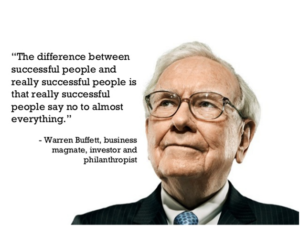Tag Archive for: career management
Confidence is defined as “a feeling of self-assurance arising from one’s appreciation of one’s own abilities or qualities.” You know there’s something about a confident person. They are individuals who walk with a certain air about them….not arrogance or hubris, but a quiet confidence. They may not know how to do it all, but you wouldn’t know that by seeing them in action. I think of confident leaders I’ve known who were so certain of themselves that I was instantly drawn to them, as were others.
Confident people engage other people.
Well, how do you get there? What is it about confidence? What is that aura that is so engaging and compelling? And how do you develop greater confidence for yourself?
Confidence is a muscle that you can learn to grow and strengthen. Just like progressive resistance exercise which increases weights to build muscle, confidence grows as you use it more and more and in a variety of situations.
It can help you to sell your agenda, whatever it is. Whether trying to persuade your boss, or a hiring manager through an interview, a confident attitude can help you to succeed. Many times, the individuals you are meeting with are looking for that confident attitude in those situations. Demonstrating confidence goes a long way to “close the deal” on your behalf.
Here are a few exercises for that confidence muscle:
1. Think back to a time when you were highly confident and successful. What were you doing in those situations? What made you confident and self-assured? Find a way to bring that experience into your current one. If you could do it then, you can do it now. What would need to be present to feel like that again?
2. Sometimes a lack of confidence can equal fear about a situation. Understand and acknowledge the fear and hesitation. It’s there for a reason. Then (as a wonderful book stated), “Feel the Fear and Do It Anyway” (Susan Jeffers). That thing you most fear can be something that strengthens your confidence muscle, and becomes a “must do.” Now, if it’s something like public speaking, start small with speaking in front of a few people and work your way up.
3. Find a role model of confidence around you. It could be a leader or a peer or someone who just embodies that bold yet measured self-assurance. Think about how this person would handle the situation where you need more confidence and “channel” that person’s confidence to help you through.
4. Fake it till you make it. I’ve used this one many times in addressing large meetings. As you look out over the crowd, it can be intimidating. But when you take on a persona of confidence, it becomes much easier. It takes some practice, but I can tell you it is doable!
5. Take three deep breathes and lift your arms up in a V. Feel your power all around you. It’s who you are and it will bring you confidence. I suggest this to many of my clients, especially before an interview, taking some time alone and feeling your power. Amy Cuddy writes about power poses and how these can help lift the confidence factor. It’s definitely worth a try!
Confidence is an important skill to learn and build. It takes some practice to build but the benefits can affect every aspect of your life.
ACTION CHALLENGE
Time to express greater confidence in all that you do. Set a goal to move toward a more confident you this week by using some of the techniques here, or on your own.
I would love to hear your thoughts.
That commute home is where it hits you, or maybe it’s when you finally walk out of the office door for the evening….what did I get done today? You look at your To-Do List at the end of the day and find that it’s actually grown since the morning started out.
Some days, productivity escapes you.
Now, there could be some very good reasons for this. It may have been a day of putting out a lot of unexpected fires, or for some other reason, priorities shifted beyond your control.
What keeps you from getting as much done every day as you can? What if you set a goal that you would be more productive this week? Would you know what the barriers to your productivity are?
How do you become more productive?
Decide that you want to experiment with productivity to make this more of a daily priority. You can explore what gets in the way of a productive day. There are certain barriers to productivity that are important to understand:
Procrastination (see my article next week) – Ah yes, this is putting off those really big scary tasks and never seeming to find the time for them. Recommendation: Make a list of all of those things that you are procrastinating about then put a small plan together to address each of those NOW, today. What is the smallest you can do that will at least get you moving on this activity?
Perfectionism – it has to be done perfectly….OR ELSE! Challenge that perfectionist side of you to take a break! Instead of perfection, strive for progress every day and don’t evaluate what you did wrong or not good enough, but instead what moved forward, even if slowly.
Not having clear and realistic goals. Do you know exactly what you need to accomplish each day? Take some time to set goals for yourself both personally and professionally….even if it’s at the weekly level. Set goals every week before the work week begins then cascade these goals daily, even if in bite-sized pieces…make slow but steady progress.
Not prioritizing your work and focusing on the most important things. Your To-Do List maybe 3 pages (yes that happened to me once) but prioritization is what will determine your productivity. What are the most important things that need to get addressed? You can number rank them or do the ABC method. Whichever works best for you.
Not having the right tools, or not using them correctly. It’s important to have a task and project planner. I use the Franklin Covey method. Others use Outlook, for example. This is a place where you put your calendar, priorities for the day, and allows them to all roll up to weekly and monthly tasks.
Lack of understanding around peak performance times. There are times where you do better work than others. Are you a morning person? Afternoon? Evening? Plan to tackle your most difficult and challenging work (see Procrastination list) during your peak times. Really notice when you peak in energy throughout the day and manage your work effort by those peaks.
Holding on to things you really need to let go of. Delegate, delegate, delegate. Sometimes you may have to spend money to become more productive by hiring a virtual administrative assistant or having the dry cleaners deliver and pick up at your home. At work, look for others who could benefit from your delegation of assignments.
I go to bed so late and wake up tired. Your productive day begins the day before. You can plan tasks, clean up your office space and come to a new organized area every morning where you know exactly what you need to do to hit the ground running.
Eliminate interruptions…turn your phone and notifications off for a little while. All the interruptions can wait for you to focus on what you need to get done.
ACTION CHALLENGE
Do any of these barriers resonate with you? What can you work on this coming week to increase your daily productivity? Experiment with best techniques for you.
I would love to hear your thoughts.
Lupe S. Wood, MS, PCC, is a certified Career/Executive Coach. She coaches individuals and leaders to career fulfillment, transition, and advancement. She also consults for results with businesses and solopreneurs. Her background includes 12 years in senior leadership for a Fortune 100 corporation and 7 years as a coach, with a Master’s degree in Organizational Effectiveness and Executive Coaching.
For more information, please visit my website at www.upcoached.com
Does this sound familiar? Your boss gives you an important assignment. It’s not due for 3 months but will take a bit of time to research and present a solution. Days pass, weeks pass…lots of urgent work to attend to. You haven’t forgotten about the assignment, but you keep putting it off and putting it off until you realize you only have a week left and haven’t even started to look at the assignment.
Procrastination happens to all of us. Before the time of electronic returns for your taxes, US Post Offices would be flooded with people on the evening of 4/15. There would be long lines of cars and the post office having postal workers out collecting the taxes to be mailed. It was an annual ritual.
Yes, procrastination happens to all of us.
It’s the act of putting things off for another time, not addressing the “important but not urgent” items.
There are several reasons for procrastinating:
Fear – fear of failure, fear of not being perfect, fear that you don’t know what you’re doing or fear of what happens when you do it (for example, I owe on my taxes!).
Lack of knowledge – You truly don’t know how to do it and don’t feel comfortable asking someone.
Perfectionism – You just know you can’t do this perfectly, so you don’t do it at all.
Lack of organization – This is just so big and complex. Where do I start?
Complexity – You don’t know how to plan out a complex project and task it out.
Busyness – You said “yes” to something when the reality is that you are over capacity and never should have agreed to it in the first place.
Rather than the address at the moment, it gets placed on a shelf, until there is just no choice but to move forward on it. And now, it’s a rush to get something done with a lot of guilt and bad feelings for not doing something earlier!
How to break the cycle:
1. Forgive yourself! Studies actually show that individuals are very hard on themselves during a procrastination event. “I should have been working on this earlier.” “I should have asked for help.” “I should have just said “NO.” This negativity spirals and can also keep you locked in procrastination.
2. Take some time to understand your procrastination style. Understanding what makes you procrastinate can help you address the situation when it arises. What makes you procrastinate? For myself, I know that it is complexity, busyness, and sometimes downright cold fear.
3. Write it all down. Capture all of those things that may not be written down, but keep you up at night. For example, I know there are a lot of house tasks we need to address in our home, but none of these are written down… reseal the deck, have a roofer out, blacktop the driveway. These things can gnaw on you until you address them and step one can be simply making a list.
4. Ask for help! There are so many ways to address what needs to be done…virtual assistants, handymen, your co-workers, someone you trust. Understand that the task won’t go away…hire someone to help or delegate it.
5. Ask yourself, what’s bothering me…what’s uncomfortable about this task? Is it something I don’t know how to handle or something so visible that if I make a mistake it will be huge? What is making you avoid this task? Doing this analysis can help you to decide on what you need to do to make this happen.
6. Plan it out. I like to keep lists on my Franklin Covey planner so that these kinds of efforts don’t fall to the wayside. Plan the smallest amount of work you can do each week.
7. Let someone hold you accountable. Share with a trusted friend, advisor, coach. Have them keep you accountable to keep moving forward, no matter what.
I laugh at the expression of getting “a round tuit”. There are a lot of “round tuits” out there. Decide that you will instead go for getting motivated…motivated to tackle those things that you have been procrastinating about.
ACTION CHALLENGE
Do you know your procrastination style? Take some time this week to break the cycle of procrastination and move forward.
Lupe S. Wood, MS, PCC, is a certified Career/Executive Coach. She coaches individuals and leaders to career fulfillment, transition, and advancement. She also consults for results with businesses and solopreneurs. Her background includes 12 years in senior leadership for a Fortune 100 corporation and 7 years as a coach, with a Master’s degree in Organizational Effectiveness and Executive Coaching.
For more information, please visit my website at www.upcoached.com
“Um, NO, I think not, well, maybe not, um, OK, not right now, that is of course….unless you really need me to.”
How good are you at saying “No?”
The word “no” is truly a hard word to remember and to use effectively. Need more control over your time and your day? There are so many time management tools out there including prioritized lists, calendars, daytimers, Franklin Covey Timers, Outlook, etc. etc.…all in an attempt to get more done every day.
Yet sometimes, you can free things up considerably by just saying the magic word, “No.”
Consider this quote by Tony Blair, former Prime Minister of England: “The art of leadership is saying no, not saying yes. It is very easy to say yes.”
Where do you draw your boundaries?
Boundaries can disappear in our lives for several reasons:
1. I can’t possibly say no to _______________. There are certain people or situations in our lives that are especially difficult to say no to. It could be your boss, your parents, your children, your friends.
2. You may have people around you who are skilled at getting you to do what they want you to. They don’t mean any harm…they just want to take up your time with their needs and requests and know exactly which of your buttons to push.
3. You want to please people.
4. You feel validated or needed through requests of your time.
5. You would feel so guilty (similar to number 1) if you said no.
6. You think it’s a part of your job to never say no.
7. As Tony Blair stated above…it’s just easier to say yes and let your boundaries be crossed than to say no and deal with the fallout from that…negative reactions from others or yourself.
If you recognized yourself in any of these statements, then your boundaries may need a little tune-up to understand where they are and how to effectively protect them.
Many times you don’t even realize your boundaries are being crossed, but a sure-fire indication is if you find yourself feeling overwhelmed, or resenting what you’re doing, or both.
I served on the board of directors for a non-profit. It was a gratifying yet very time-consuming commitment. I was finally forced, with commitments around growing my coaching business to bow out and resign. A few months later, I was asked if I could help with something. I had already said I was done, but they were asking me so persuasively. It took a lot of conviction, but I said I was so sorry and no. Then a few weeks later, I received a beautifully engraved crystal bowl as a thank you for my years of service, with a note asking for my help. This was a huge test. They really needed me!
One of the things I did was to stop and think before I said yes. I realized that there were other capable board members who could step up to the plate as well. It was so difficult, and guilt provoking, but yet again, I had to say no.
I was saying no to protect the prioritization in my work and life. But it takes effort to determine, ahead of time, what is most important in your life. An examination of boundaries can begin there…by prioritizing where and how you want to spend your precious time, guilt-free.
Saying no can mean overcoming guilt. It’s about really examining what your motives are, and deciding the best option for yourself at this time. Saying no means building up security within you that says “I don’t need this acknowledgment; I can do this for myself.” Saying no takes practice, but like all things, it helps to reconsider your goals and priorities before launching into the yes.
If saying no is just too difficult, try this response I once learned from a very wise woman, “My answer is no at this time but if I can, I’ll get back to you.”
ACTION CHALLENGE
What do you need to say NO to, today? How can you constructively look at keeping your boundaries and making informed decisions on what to take on?
Lupe S. Wood, MS, PCC, is a certified Career/Executive Coach. She coaches individuals and leaders to career fulfillment, transition, and advancement. She also consults for results with businesses and solopreneurs. Her background includes 12 years in senior leadership for a Fortune 100 corporation and 7 years as a coach, with a Master’s degree in Organizational Effectiveness and Executive Coaching.
For more information, please visit my website at www.upcoached.com





